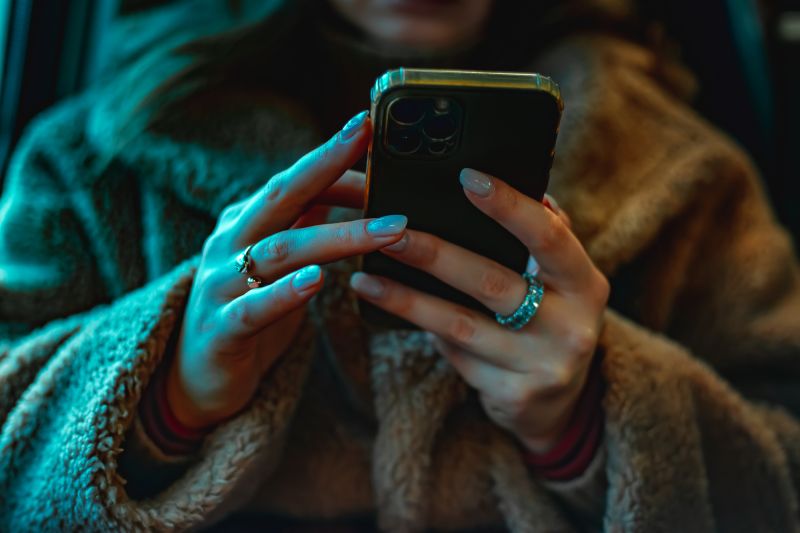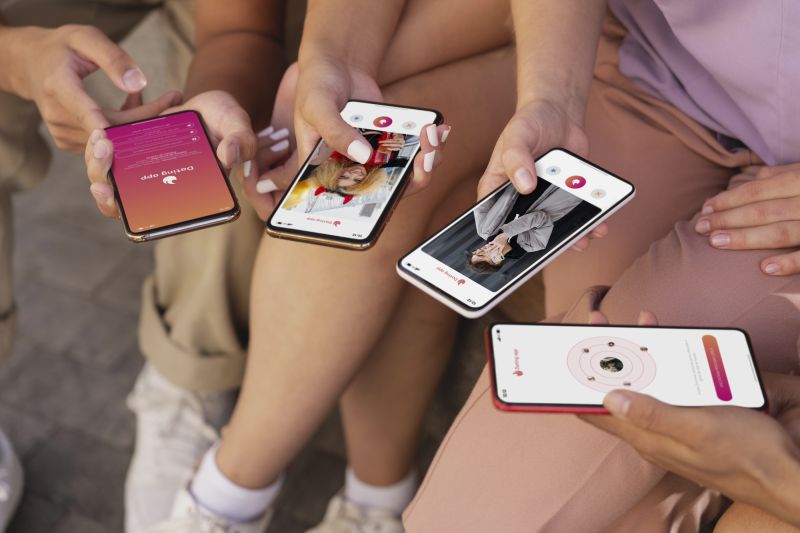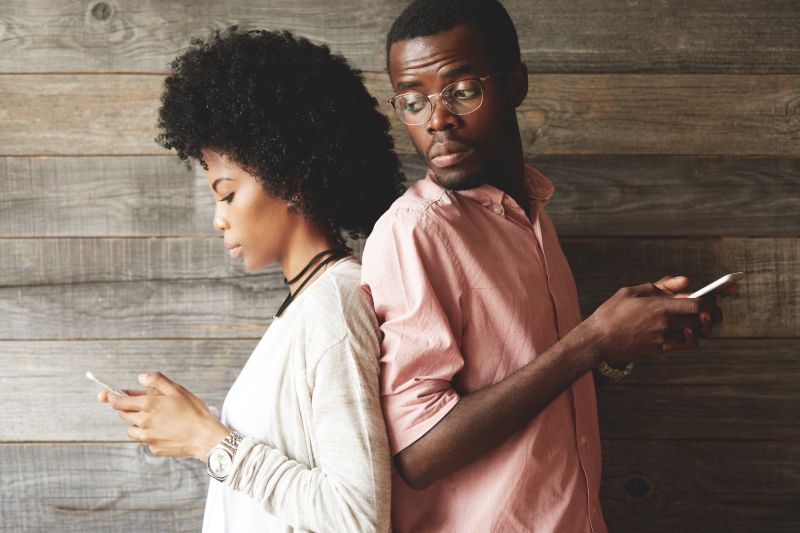Are Dating Apps Addictive? A New Lawsuit Claims They Are
Dating apps have become part of our romantic and social landscape. Many people spend hours per week (or day) staring into the faces of beautiful strangers. So, are dating apps addictive?
A recent US lawsuit brought against the Match Group claims that dating apps are not only addictive but are, in fact, designed to encourage compulsive use.

In many ways, online dating and apps have transformed our love lives for good. They have facilitated connections and enabled people worldwide to find hot hook-ups and lasting love.
But in other ways, technology has led to technoference, and apps have made dating less personal, decreased real-life connections, and, according to a recent lawsuit, created a wave of addiction to dating apps.
A class-action lawsuit has accused dating apps of driving addiction
On Valentine’s Day last month, a lawsuit was filed against Match Group, which owns dating apps including Tinder, Hinge, and The League.
The lawsuit accused them of designing dating apps with features that “market success by fomenting dating app addiction that drives expensive subscriptions and perpetual use”.
Hinge markets itself as an app that’s “designed to be deleted.” Yet this lawsuit claims that Match’s apps turn users into “gamblers locked in a search for psychological rewards” through the use of “dopamine-manipulating product features” to keep users on the app and maximise profit.
Addiction to dating apps: How does it work?
Dopamine magic
Dopamine is a neurotransmitter, or chemical messenger in the brain, that influences how we feel pleasure and reward. That thrill you get when you win a game, get a ton of Instagram likes, or have an orgasm? Dopamine.

In manufacturing this hit of pleasure, dopamine becomes a powerful motivator. Getting a match makes us feel good, which motivates us to repeat the behaviour - opening the app, scrolling - that gets us there.
What else makes dating apps addictive? App features like roses, hearts, and pings function like Instagram likes in that they are socially rewarding. They trigger an exciting but fleeting dopamine release.
In a world where social status is highly valued, these pings of approval feel extra good.
Anticipation and unpredictability
Many of the apps we use daily are designed to have powerful psychological effects besides dopamine release.
Our favourite apps show potential matches one by one. We don’t know who our next match will be and, like when playing slot machines, we’re intoxicated by the prospect that the next swipe might be the one. This Just one more thought process creates a cycle of anticipation and validation that’s hard to escape.

Are dating apps addictive? Intermittent reinforcement seems to suggest they are. During a swiping session, we are ‘rewarded’ with matches at irregular intervals. The uncertainty of when the reward will come compels us to swipe as much as we can throughout the day.
This feature is known to elicit obsessive behaviour. Unpredictability keeps our appetites wet and our anticipation high, making us want to constantly check the app just in case we get a match and experience the thrill we desire.
On top of these habit-forming features of dating apps is the fact that they are designed like a deck of cards. You swipe one way or the other with the alluring promise of reaching the bottom of the deck.
What does dating app addiction look like?
Not everyone who regularly uses dating apps is an addict. Far from it. Nonetheless, the more we rely on dating apps for self-esteem boots, social validation and brief pleasure hits, the more dating app addiction grows.
If you think you’re addicted to Tinder or another dating app, here are some signs to watch out for:
- You spend more time on dating apps than on actual dates. The ease of these apps makes it easy to keep swiping and sometimes harder to get out of the house and connect in real life.
- Your desire to use the app is getting the way of your regular life - you are changing or cancelling plans, or your work output is suffering because you spend so much time on apps.
- You experience withdrawal or some kind of psychological distress if you can’t or don’t access dating apps for a period of time.
- Your dating app usage increases more and more over time.

Take time to reconnect with yourself and the world around you
If you think you could be addicted to dating apps, or just think you spend too much time on them in general, the first step is acknowledging it.
Addicted to Tinder? The next step is to break the habit by taking a long break from dating apps. This won’t be easy at first, but once you get through the initial cravings, new, better habits can form.
Boost your self-esteem and reframe your mind by finding healthier things that make you feel good, like exercise, new hobbies, spending time with friends, and practising mindfulness.
Are dating apps addictive? There isn’t a clear answer to this question.
But whether you’re a regular or occasional dating app user, get the most out of your time and look after your mind by doing everything in moderation and ensuring dating apps are what they should be: fun!









